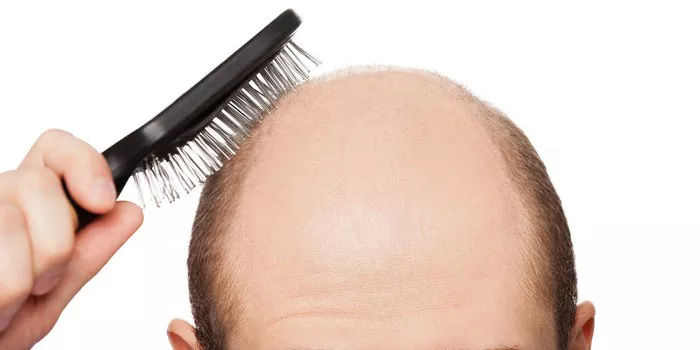If you’re grappling with Telogen Effluvium, a condition characterized by excessive hair shedding, you’re likely facing a series of tough questions about managing your locks. One of the most common dilemmas is whether to cut your hair or let it grow. In this article, we’ll delve into the intricacies of Telogen Effluvium and provide you with informed insights to help you make the best decision for your hair health. Let’s explore the topic further:
Understanding Telogen Effluvium
Telogen Effluvium is a hair loss condition caused by various factors such as stress, hormonal changes, dietary deficiencies, or medical conditions. During Telogen Effluvium, your hair follicles prematurely enter the resting phase, leading to hair shedding.
Telogen Effluvium occurs when a significant number of hair follicles enter the resting phase simultaneously. This condition is usually temporary, and the hair usually regrows once the underlying trigger is resolved. Stress, poor nutrition, illness, and hormonal fluctuations are common causes of Telogen Effluvium.
The Role of Hair Length
The length of your hair can influence how you perceive and manage Telogen Effluvium. Let’s explore the factors that might affect your decision to cut or maintain your current hair length. Longer hair may appear thinner due to increased shedding, potentially causing distress. Cutting your hair can provide a sense of control and help reduce the visual impact of shedding. Shorter hairstyles may be easier to manage and style during this period.
Pros and Cons of Cutting Your Hair
Before you make any decisions about your hair, it’s essential to weigh the advantages and disadvantages of opting for a shorter style.
Pros:
- Reduces the appearance of thinning hair.
- Easier to manage and style.
- May improve your overall appearance and self-esteem.
Cons:
- Cutting your hair won’t address the underlying cause of Telogen Effluvium.
- If your hair loss is temporary, you might regret cutting it when it starts growing back.
- Short hair might not suit your face shape or personal style.
Managing Telogen Effluvium Without Cutting Your Hair
If you’re hesitant about taking scissors to your locks, there are alternative approaches to manage Telogen Effluvium effectively.
1. Stress Management: Reducing stress through relaxation techniques or therapy can help mitigate hair loss.
2. Balanced Diet: Ensuring you have a nutrient-rich diet can promote hair health.
3. Topical Treatments: Consult with a dermatologist for topical treatments or medications that can encourage hair regrowth.
4. Hair Care: Gently handle your hair to minimize breakage, and avoid harsh styling products.
Consulting a Professional
Ultimately, the decision to cut your hair during Telogen Effluvium should be based on your unique circumstances. It’s crucial to seek professional guidance.
1. Dermatologist: Consult a dermatologist to determine the root cause of your hair loss and receive personalized advice.
2. Hairstylist: If you decide to cut your hair, consult a skilled hairstylist who can recommend a flattering style.
3. Trichologist: In some cases, consulting a trichologist, a hair and scalp specialist, can be beneficial.
See Also: How to Stop Tension Alopecia: Effective Strategies & Tips
Conclusion
In the realm of Telogen Effluvium, deciding whether to cut your hair is a personal choice influenced by various factors, including your hair’s current length, your comfort, and your long-term goals. While a shorter style might provide immediate relief from the visual impact of hair shedding, it’s essential to address the underlying causes and consider alternative management strategies. Always consult with professionals to make an informed decision tailored to your unique circumstances.
In conclusion, your journey through Telogen Effluvium should be marked by careful consideration, professional guidance, and patience as you work toward regaining your hair’s full health and beauty. Remember, the decision to cut or not to cut is just one step in your path toward recovery.


